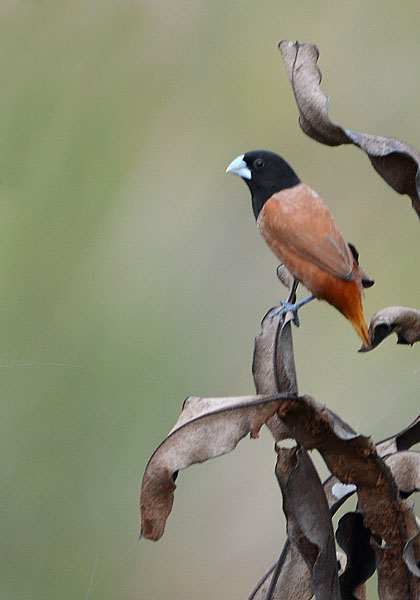I
have not been out birding as often as I used to but reports of a pair of
Bronze-winged Jacanas at the marshlands of Batu Kawan awoken something in me
that has been dormant for too long. It was just a matter of time before I made
my way to seek out this scarce resident. Unlike in neighbouring Thailand, only a
couple of sites in the northern state of Perlis is where this species has been
recorded with any regularity in recent years.
It
was a gloomy morning and with no signs of the jacanas upon arrival, the
atmosphere was less than cheerful for my company and other like-minded birders.
A White-browed Crake almost had us fooled when it caused some movement among
the floating vegetation. But a Bronze-winged Jacana is just too stunning to be mistaken
for anything else.
Migratory
Reed-Warblers, as the name implies, find refuge here in the reeds as well. However,
they can hide remarkably well if they want to. Today, only the Black-browed
Reed-Warbler managed to find its way into my memory card.
When
the celebrity birds finally revealed themselves, the joy was short-lived.
Perhaps the presence of too many humans did not go well with the Bronze-winged
Jacanas and they kept a safe distance throughout our observation. The poor
lighting condition only compounded my dismay. Emotions aside, there is no
denying the significance of this first state record. Enjoying the true
resplendence of this lily trotter will just have to wait another day.
The
pair was showing signs of breeding and we were even given a short courtship display.
Inevitably, throng of bird photographers came for these beautiful water birds
and some were overly enthusiastic and creative in their quest. Shortly after our visit, Malaysia came under
lockdown again due to the pandemic. I guess it was a blessing in disguise as the
stricter movement control order gave the Bronze-winged Jacanas a chance to
raise a family in peace. At the time of writing, the chicks have long fledged despite
all the disturbances the nesting pair had to endure initially.
Without
any indications of improvement shots for Bronze-winged Jacanas, I started to
give the other species present their due attention. Unfortunately, there were
not many around. A lone Asian Openbill was close enough for a record shot but
not close enough to evoke anything else.
My
best effort today should be of this adult Purple Heron resting all so elegantly
among the reeds. It remained unperturbed by my presence and on a trip where
good images are hard to come by, this common but striking heron provided the
magic.
A
good number was present in the vicinity today including juveniles pointing to a
successful nesting season. Penang, my home state, is one of the busiest in the
country. It is constantly being developed and sometimes at an alarming rate. Call
me a pessimist but I can see no happily ever after for the colonies of Purple
Herons here. It is just a matter of time before development displaces this
wildlife refuge.
The
absence of some of the usual water birds today was disheartening and the walk
along the access road was long and tedious. A Malayan Pied-Fantail literally
stopped me at my tracks when it suddenly alighted on the road not far from me.
It was not exactly in pristine condition. Probably had a rough day so far as
well but it did well enough to brighten up the day.
Chestnut
Munias are the commonest munia species here and a small flock foraging along
the edge of the reeds had my undivided attention. Like the Fantail, they were
confiding and provided some cheer before the rains concluded the trip.
Three
months have past since that gloomy morning with the Bronze-winged Jacanas. Due
to the increased severity of the coronavirus in the country, it was my last birding
excursion. It is a dark time now and life is shrouded with uncertainties. However,
I always believe nothing lasts forever. Not even a global pandemic. To wrap
things up for this time is not an image but rather, a cliché quote by Friedrich
Nietzsche - that which does not kill us makes us stronger.











